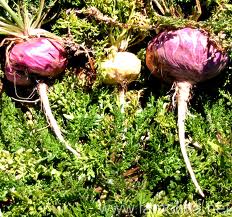
Vitamins and Minerals in Maca Root Powder
Maca Root Powder Micronutrients: Iron and Iodine
Micronutrients are nutrients that are needed in small amounts and are essential to the production of the enzymes and hormones in the body. Iodine, iron, manganese and zinc are the micronutrients present in maca root powder. Iron is essential for oxygen transport and cell growth. The recommended daily intake for iron is 45 mg a day for adults over 19. Two teaspoons of maca contains about 1.5 mg of iron. Iodine is necessary for thyroid function and supports a healthy metabolism. The recommended daily intake for iodine is 150 mcg a day for adults. Two teaspoons of maca contains about 52 mcg of iodine.
Maca Root Powder Micronutrients: Manganese and Zinc
Manganese assists the body in forming connective tissue, bones, blood clots and sex hormones. It aids in metabolism, calcium absorption, and normal brain and nerve function. Manganese also balances free radicals in the body. The recommended daily amount of manganese is 2.3 mg for men and 1.8 mg for women. Two teaspoons of maca root powder contains 80 mcg of manganese. Zinc is required for the function of about 100 enzymes. It supports the immune system, synthesis of protein, DNA synthesis and cell division. It helps wounds to heal and is needed for the functions of taste and smell. The recommended daily intake of zinc is 40 mg. In two teaspoons of maca root powder, there are about 380 mcg of zinc.
Maca Root Powder Major Minerals: Calcium and Potassium
Calcium is essential to your body’s vascular functions, muscle function, nerve transmission, cellular communication and hormonal secretion. In every 10 g or 2 tsp. of maca, there are 25 mg of calcium. The recommended daily intake of calcium for men and women over 19 years old is 1,000 mg. Women over 51 require an additional 200 mg. Potassium is a mineral that supports the function of all cells, tissues and organs in your body. Potassium is an electrolyte, which conducts electricity in the body. It aids muscle contraction and function and digestion. The recommended daily intake for men and women over 19 is 2000 mg. In every 2 tsp. of maca, there is 215 mg of potassium.
Maca Root Powder Vitamins: B Vitamins and Vitamin C
B vitamins assist your body in creating energy from the food you consume and help to form red blood cells. Maca is rich in riboflavin, also called B2; niacin, also called B3; and B6. Vitamin C assists your body in regenerating cells in your skin, tendons, ligaments, blood vessels, cartilage, bones and teeth. Vitamin C is also an antioxidant. Antioxidants are nutrients that work to cleanse the damage done by free radicals. The recommended daily amount of Vitamin C is 90 mg a day for men and 75 mg a day for women. Two teaspoons of maca has about 28 mg of vitamin C.
Baking with Maca Root Powder
Ok, now that you understand all the awesomeness that you are putting into your body, the next step is to figure out how to add Maca into your diet. Maca Root Powder works just like flour. You can substitute about 1/8 to 1/4 of the flour in your recipe with Maca Root Powder and you won’t notice a difference in flavor. If you put too much of the Maca in, you can distort the flavor of whatever you are cooking. I would recommend making some simple muffins or pancakes ahead of time for the week. This way you have fresh Maca baked goods to eat all week long (or at least for a couple of days depending how many people you are feeding ![]() .
.
Maca Root Powder in Smoothies
I love smoothies. I put Maca Root powder in all my smoothies. Remember Maca Root Powder has the consistancy of flour. So you only want to add 1/2 tsp. to 1 tsp. of Maca to a full blender. When you add Maca to a smoothies, you want to make sure you have added some fruit of substance to the smoothies to hold everything together such as banana or dates.
Maca Smoothie Recipe
Iced Purified or Spring Water (enough to fill blender)
3 Bananas
4 Dates
1/4 cup shredded Coconut
1-2 tsps. Spirulina
(optional) 4 tsps Cocoa
1-2 tsps. Maca Root Powder
Mix together in blender on high for 2-5 minutes and serve cold!
 MACA ROOT POWDER is widely categorized as a superfood; a food high in micronutrients, essential vitamins and minerals with the power to strengthen cells and cellular response, aid the body in recovering from stress, increase energy and libido. It’s scientific name is Lepidium meyenii and it is a root vegetable that has been cultivated in the Peruvian Andes since 1600 B.C., at altitudes from 8,000 to 14,500 feet. Native Americans and indigenous Peruvians have used maca root as a medicine and a source of nutritional support to stimulate the immune system, treat anemia, stomach cancer, tuberculosis, enhance memory, menstrual disorders, menopause symptoms, infertility, sterility and sexual disorders.
MACA ROOT POWDER is widely categorized as a superfood; a food high in micronutrients, essential vitamins and minerals with the power to strengthen cells and cellular response, aid the body in recovering from stress, increase energy and libido. It’s scientific name is Lepidium meyenii and it is a root vegetable that has been cultivated in the Peruvian Andes since 1600 B.C., at altitudes from 8,000 to 14,500 feet. Native Americans and indigenous Peruvians have used maca root as a medicine and a source of nutritional support to stimulate the immune system, treat anemia, stomach cancer, tuberculosis, enhance memory, menstrual disorders, menopause symptoms, infertility, sterility and sexual disorders.